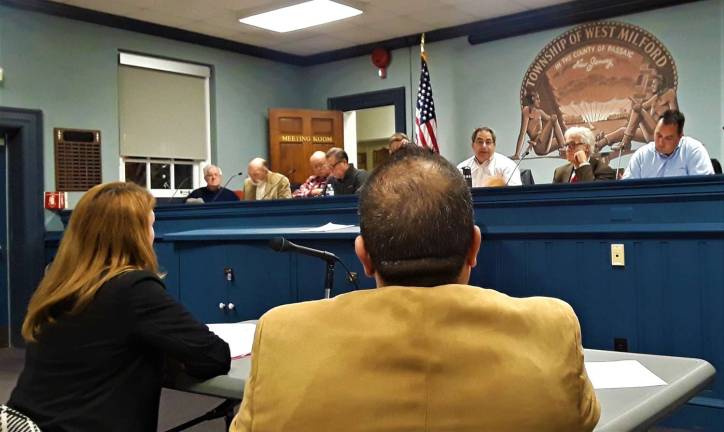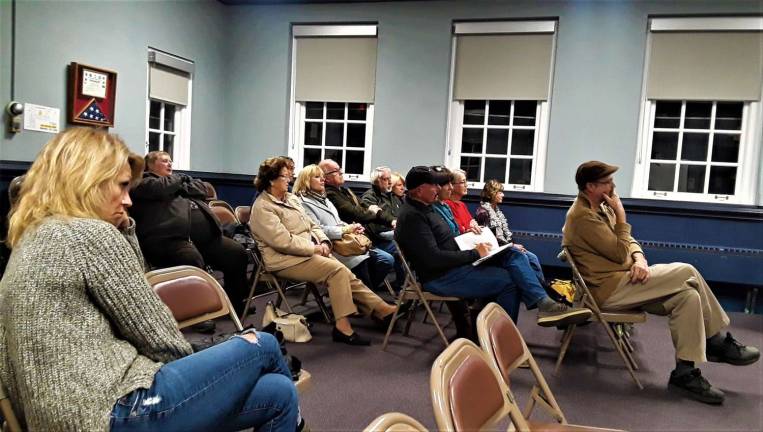Planning Board: More work needed on draft Airbnb ordinance


By Charles Kim
WEST MILFORD – More work needs to be done before the Planning Board can recommend an ordinance dealing with homes used by the online Airbnb service.
“I don’t think this thing is going to be a hurried project,” Planning Board Chairman Andrew Gargano said during the Oct. 25 meeting before remanding a draft ordinance back to the board’s ordinance subcommittee.
The board was tasked by the Township Council in September to come up with an ordinance that deals with the use of homes for this purpose because there is nothing currently on the books.
Airbnb started in 2008 and uses an online application to put people needing a place to stay with “hosts” that let out rooms and homes for short term rentals.
The service acts in a similar way that Uber and Lyft operate for transportation, with customers filling out an online profile and then are matched with places to stay in a given geographic area.
Customers pick the place and price that they want and pay for the stay through the application.
According to the company, there are 60 active listings in West Milford and the average income for the local host is about $10,000 annually.
The subcommittee drafted a proposed ordinance that would require the host homeowners to get a township permit to rent out rooms through the online application.
According to the draft ordinance, the applicant for the permit would have to pay the township an annual $300 fee, get both fire and health inspections of the property annually, maintain $500,000 insurance, and provide contact information for a local person who could respond to problems at the property.
Sixteen people, most opposed to allowing Airbnbs operating in the township, spoke out during the public portion of the meeting.
“It is unacceptable,” Hewitt resident Patricia Romano said. “I understand we cannot completely ban it, but if we made (the minimum stay) a week, there wouldn’t be such a churn (of guests).”
Romano and others opposed said the transient nature of the guests damage the feeling of the neighborhood.
Another Hewitt resident, Doris Berry, said it’s a quality of life issue and the use of Airbnbs in her neighborhood is destroying that quality.
“We get vacationers every weekend. They have a vacationer mentality,” Berry, a retired school teacher said. “I worked my entire career to put my pool in. I finally got it. I don’t even lay out there anymore because the Airbnb people are partying it up.”
She said the Airbnb use has caused her not to have the same quality of life she had two years earlier and that safety is now a concern.
“It’s not fair,” she said. “The Airbnb (hosts) are generating income at our expense. We have different people in this home every two or three days.”
She said the people are not vetted to see if they could possibly be pedophiles, burglars or other types of criminals.
“Are they burglars casing our homes?” she said.
Township Councilman and board member Lou Signorino said that the proposed regulations in the draft ordinance may bring some money into the township, but does not really address the issues being raised by the residents opposed to the use.
“I don’t see how we are fixing anything (with the draft ordinance). We are just creating more red tape and a way to charge people money,” Signorino said. “The discussion is good; I just don’t know if this is the way to go about it.”
Township Planner Jessica Caldwell said the draft ordinance looks to regulate the practice rather than ban it because that would not likely stand up legally.
Caldwell said that New Jersey towns that have tried to ban the short-term rentals have found that people still rent them anyway and it becomes an enforcement issue.
“You are only really addressing it when someone complains,” she said. “That is why we have taken this track (to regulate).”
Board Attorney Thomas Germinario said, however, that these kinds of ordinances are new and, to his knowledge, have not had much in the way of decided cases where it has been challenged.
He said that, in the past, courts have usually come down on the side of the property owner having the right to lease out space short or long term.
“(These types of ordinances) are of a recent vintage, and the wheels of the judicial system move painfully slow,” he said. “We still don’t know if there is a constitutional issue here of taking property rights. Banning, even very short term, likely has some constitutional problems associated with it.”
The subcommittee will look at the proposed ordinance again in early December.
Once the board approves the ordinance, it will send it to the council for a public hearing and final adoption, officials said.